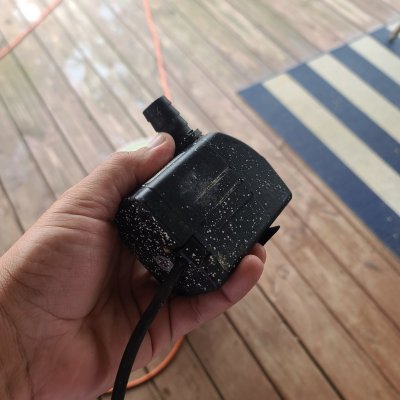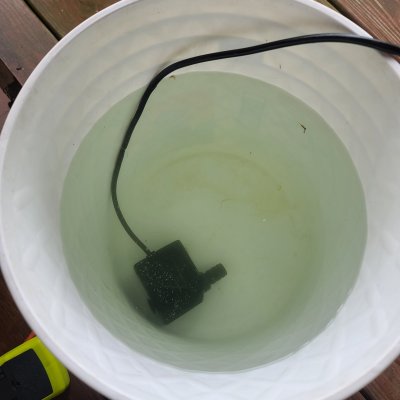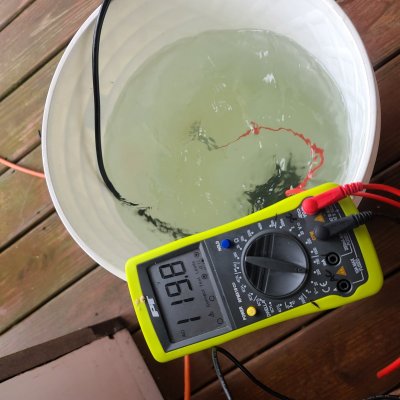"Your body needs to be thoroughly grounded in order to feel it."
Hmm yes... but fish swimming in a tank are not grounded either.
According to the internet. HAHAHAHAHAHA. People can die from swimming in electrified water. Seems odd, I mean they are floating in the lake just like the fish?
1. Adult swimming in or near water that is electrified, his or her body can become a conductor for that electricity,
2. If you feel a shock, swim away from the dock, helps you remember what to do if you feel tingling or shocks. Yell to others to cut the power source.
3. Electric shock drowning is a term used in the US to describe a cause of death that occurs when swimmers are exposed to electric currents in the water. In some cases the shock itself is fatal,
4. Electrocution in water poses a serious and deadly danger to everyone who swims in a lake or a pool. Tragically, the person becomes a conductor of the electricity as it passes through his or her body. This paralyzes the person’s muscles, rendering him or her unable to swim, which could ultimately cause the person to drown.
IMO here’s my two cents about a grounding rod addition. I am and am not a fan, I know a little about the purpose the rod serves. The water with a grounding probe completes the circuit. The current hits the water and seeks out the closes ground, I believe that if using one of these rods. a sump installation would be best because again; the circuit seeks closes ground and since most of the gear is in the sump, alongside the rod then the fish should be protected, unless it’s a dt wave maker that goes bad. then the fish are toast due to the fact that the current passes thru them ,down into the sump and that would most defiantly kill the fish or anyone at 110-120 v
“A ground rod will prevent a person standing in saltwater from being electrocuted by a “charged” aquarium. But it ensures that all the fish in the tank will be electrocuted in case of a 110-volt power “leak”. If you have a power “leak” the electrical charge can travel through the aquarium and through the fish to the ground, killing the fish. Pick your poison; you being electrocuted in a very rare set of circumstances or your fish being electrocuted in a relatively common set of circumstances.”
again very odd that people are affected by swimming in elec water but not the fish. yall heard this before get out of the water if there is lighting. Again just my two cents spend it as you wish adding to the debate to become better educated.
There are videos of people swimming in pools just fine... until they go to reach for the metal railing or ladder and suddenly they are now grounded and being shocked/electrocuted. Stories of people in a lake off a dock and when the metal ladder is lowered they get shocked (from what was a broken dock light).
They are not just swimming, they ground themselves and then get shocked.
I am not going to link any videos as it is disturbing but you can easily find them.
#2 in your post even says to swim away from the dock... for this reason. Swim away from the object that will ground you.
I am not sure what a fish would have to do to ground itself as we don't have metal apparatuses just hanging out in our tanks and most equipment is probably in a sump. Maybe some crazy unlikely scenario you have a broken heater on one side and a frayed pump wire on the opposite side causing current to travel between them.
Last edited:






















